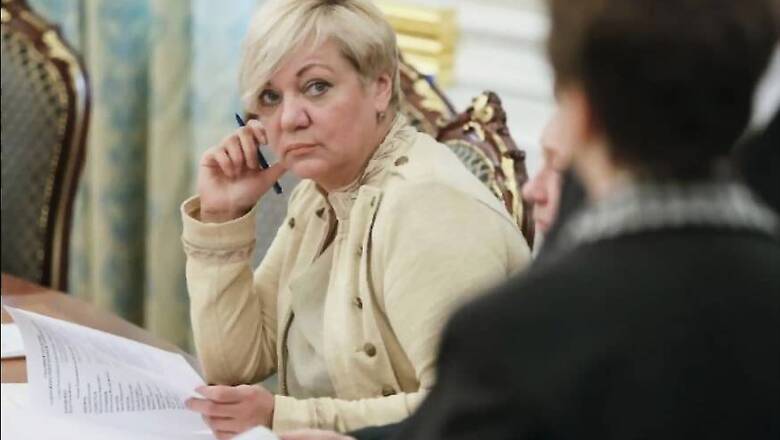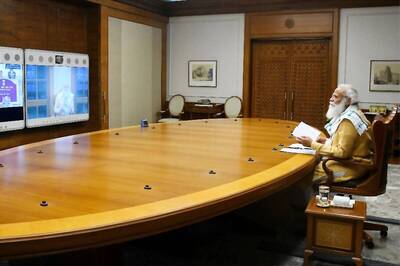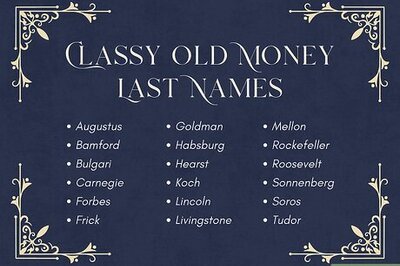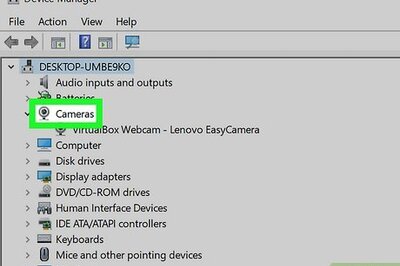
views
If Ukraine's central bank chief needed any more incentive to quit, last week she woke up to find the image of a pig draped in a Russian flag spray-painted onto the wall of her house and a gaggle of young protesters calling her a Russian stooge.
After a sustained hate campaign that also included a coffin laid at her door, Valeria Gontareva finally quit on Monday.
Gontareva's bloody-mindedness in enacting tough anti-crisis measures attracted many enemies while winning praise from investors and the International Monetary Fund, which props up the country with $17.5 billion bailout.
The appearance that Poroshenko could not shield Gontareva, his former business partner, from being hounded out of office may make it harder to replace her. The president will struggle to find someone willing to step into her "kamikaze" role, said Oleksander Kirsh, a lawmaker with the People's Front, which is in coalition with Poroshenko's bloc.
"Even those who are seen as being part of the president's team will wonder about agreeing" to head the central bank "if Poroshenko cannot protect them," Kirsh said.
PRESIDENT WEAKER
Poroshenko, owner of Ukraine's biggest chocolate company, was elected in 2014 promising to unite the country after a popular uprising toppled a pro-Russian leader and Moscow responded by seizing the Crimea peninsula.
Since then, a revolt by pro-Russian separatists in the east has bogged down in bloody stalemate with 10,000 dead, and the economy, struggling to wean itself from dependency on Russia and plagued by official corruption, has been on life support.
Support for Poroshenko's party has fallen to just 11.9 percent as of December, from 21.7 percent in October 2014, according to the Kiev International Institute of Sociology. Polls show he would lose to former Prime Minister Yulia Tymoshenko at the next presidential election due in 2019.
Recent months have seen political setbacks that make him appear even weaker. He found himself on the wrong side of public opinion when he initially opposed activists imposing an economic blockade of territory held by pro-Russian separatists; two months later he made the blockade government policy.
He also signed a parliamentary amendment that will dilute one of the biggest anti-corruption reforms enacted since the 2014 protests. He says he was forced to accept the amendment by recalcitrant lawmakers.
"Poroshenko follows behind public opinion," lawmaker and investigative journalist Serhiy Leshchenko, a member of the president's own bloc, told Reuters. "Poroshenko's agenda is formed by others instead of him, and he must follow it."
Poroshenko's office did not reply to a request for comment.
The government of his protege, Prime Minister Volodymyr Groysman, has only a thin majority in parliament to pass difficult measures demanded by the IMF, such as raising the pension age and lifting a ban on land sales.
Not passing them risks delaying or shrinking the amount of money the IMF will disburse at a time when Ukraine's economic growth is expected to weaken to 2 percent from an earlier IMF projected 2.9 percent because of the blockade on separatists.
The IMF in a report last week flagged its concerns that domestic politics could derail the bailout program.
Gontareva, who has also been in office since 2014, has been responsible for many of the reforms enacted to secure the lifeline from the IMF. She switched Ukraine to a flexible exchange rate and shuttered half the country's banks - including many which the authorities say were used as cash cows or money-laundering vehicles by their owners. She nationalized the largest lender, PrivatBank.
The protesters and some lawmakers accuse her of incompetence at best, and at worst, enriching herself at Ukraine's expense in league with the country's enemy number one, Russia.
A poll by the Democratic Initiatives Foundation in December said 80 percent of Ukrainians distrust Gontareva. But the pervasive influence in Ukrainian politics of powerful business figures makes it difficult to assess the degree to which protests against her are driven by real public anger, rather than stoked by hostile vested interests.
Gontareva's press service suggested that the latest protests were engineered as revenge by people who lost out from PrivatBank's nationalization in December.
The coffin at her door was a reminder of what can happen to central bankers in this part of the world. Andrei Kozlov, a Russian central bank deputy governor who shut down dozens of corrupt lenders, was shot dead in the street in 2006.
"Gontareva gets a lot of criticism but I judge her on what she's done and its absolutely remarkable what's been achieved at great personal risk," said Tim Ash, Sovereign Strategist at Bluebay Asset Management.




















Comments
0 comment